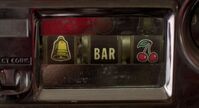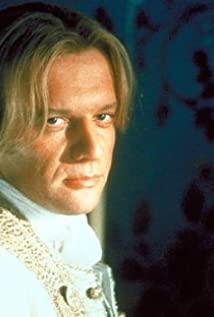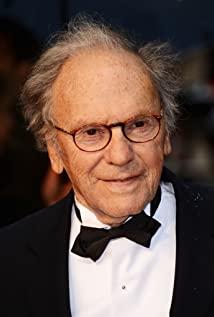Valentin's innocence and compassion touched the old judge. The old judge reported his crime. He no longer ridicules the dark corners of other people's lives. He gathered the stones that the angry neighbor had broken through the glass window and placed them on the piano in the living room. He tells Valentine that he understands that they forgive them. Those neighbors found out that he was a crime of wiretapping. They have their own reasons for anger. For example, the homosexual man, such as the middle-aged man who secretly broke the bones and blood of a happy family with an affair. The old judge said that it is easier to discover the truth by voyeurism and eavesdropping.
The old judge pulled out all the good, evil, sorrow and joy of seemingly ordinary people naked and naked during spying and monitoring. After the essence of everything is revealed, everything that is trivial, noble, ordinary, and beautiful, tearing off the real cover, looks extremely sad under the surface of happiness. The old judge's eyes saw the depths of people's hearts, but they were mocking, cold, and indignant. He seemed to be asking Valentin, "Is there anything worth loving?"
Valentin felt painful, and the pain in his heart was abruptly lifted away. Valentin is always alone. Although it is so bright in the cold world, such a beautiful existence. But still painful. She struggled in solitude, love. Loving a man makes him more lonely; loving his own brother but cannot save him; loving his own mother, but always estranged. Love as an existence is replaced by loneliness and suffering deeper and more lasting. Her love is so eager but there is nowhere to pinpoint the pain. But she still loves it deeply. As a lonely individual in the cold world, she is always pure, beautiful and compassionate.
They were far apart, but they saw the scar on each other's back. The old judge calmly recalled the past. The only love in his life was wiped out in the betrayal. He will never forget what he saw in the "white framed standing mirror", the beautiful girlfriend, "in those slender white legs...a man" never forgave them, and never fell in love with anymore. people. The truth is so ugly, love becomes indifference and hatred in the hurt. It is another extreme of love. Love's fragility, loneliness, and easy defeat will drive people into desperation. Not only for love, but also for oneself, but also for destiny.
The old judge never asked Valentin about her lover. Maybe he had seen her situation a long time ago. She was lonely and lonely but loyal and firm in the other's indifferent love. Even if it is not worth it, she still loves it deeply. No resentment. Love is a process, and has nothing to do with results, with morals, with others, and with compensation. The result has no meaning. Bear, give, and forgive. Love is a kind of compassion, compassion for life.
At the end of the movie, the old judge saw in the TV news a scene where a young man who was surprisingly similar to his fate and Valentine were rescued from a shipwreck, close together. Everything seems to have a certain ambiguous warm atmosphere and the light of hope. In the red light, she still had such a lonely but innocent look. The cruel destiny seemed to have turned around at this moment, with unbearable compassion.
Kielowski measures love and freedom in blue, and explores the equality of love and sexual love in white. In his book, Liu Xiaofeng, a master of ethics, narrated the story of Hongzhong with affection, asking us "how is love possible?"
All alone, hung in shape. Everyone in the world is mediocre and hardworking. To be more compassionate does not know how much courage and heat it takes.
View more about Three Colors: Red reviews









